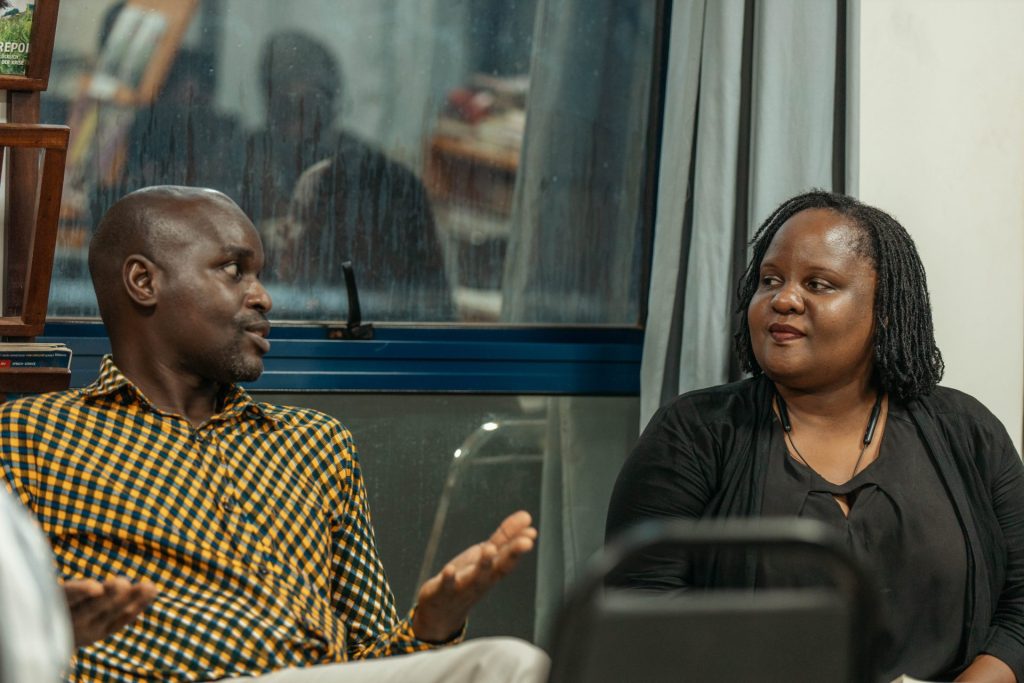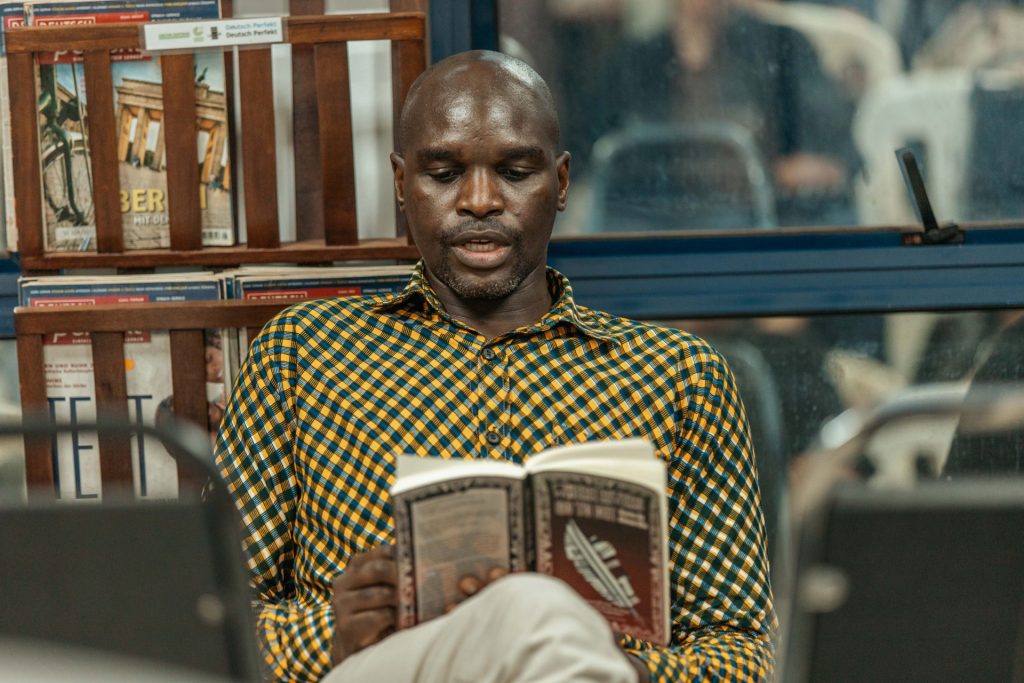Where Rivers Go To Die
Home »

`Aya walked up a stone path under the sculpture of dead trees, and for a moment she wondered what it had felt like to sit under a real tree. Ancient poets described the music leaves made as a breeze rustled them and the song of birds perched on the branches and that it was considered good luck if a bird dropped shit on you. For more than a year she had wondered what it would feel like to fly her bruka alongside a bird. If the bird would know her ornithopter was a machine or if it would mistake it for another bird. There were tales of eagles ripping drones out of the sky, but scientists and historians were not sure if the eagles thought the drones were rivals or if they foresaw their death and tried to fight back.’-Except The Last Storyteller (Part of the collection, Where Rivers Go To Die)
We ushered in the month of August with a book reading event with celebrated Ugandan writer and filmmaker, Dilman Dilman. The event centered his new short story collection, Where Rivers Go To Die, which was shortlisted for the PKD (Philip K. Dick) Awards (2024), an American science fiction award named after science fiction writer Philip K. Dick.
Precious Colette Kemigisa, the moderator of the evening, set the session in motion by congratulating Dilman for yet another fantastic collection after the release of A Killing in the Sun and The Future God of Love.

Dilman Dila (left) in conversation with Precious Colette Kemigisha (right).
The conversation covered the classification of books and its influence on book marketing and sales in the West. His works are classified as science fiction and afro-futurism though this sometimes hinders what he can write as publishers expect Black Panther kind of narratives, yet African stories are not a monolith.
His books have been said to address climate change issues and he believes that this is an ever-present situation that is not about to let up and should be addressed in literature.
Dilman read from The Last Storyteller, one of the short stories from Where Rivers Go To Die. After this, the audience was given an opportunity to ask questions.

Dilman Dila reading from his short story collection, Where Rivers Go To Die.
`I think about the character, situation, and setting and let the story guide me. And I usually finish a short story in one to three sittings,’ said Dilman when asked about his writing process.
The questions explored publishing in Uganda and why Dilman`s work is not published by a Ugandan publisher to which he said that his kind of work is not popular among Ugandan publishers who prefer to work with educational material used in schools. But also the nature of publishing in Uganda is not one he wants to engage with as it requires the author to do a lot which he does not have the capacity for.
Other questions delved into the politics of writing as the audience in the West has criticized Dilman`s work and how it represents women as overtly submissive to men. Yet by Ugandan standards, the books represent women authentically. These are queries that every writer of our time has to grapple with.
Where Rivers Go To Die is currently available in Uganda at UGX 35,000. Email writing@dilmandila.com for inquiries.
